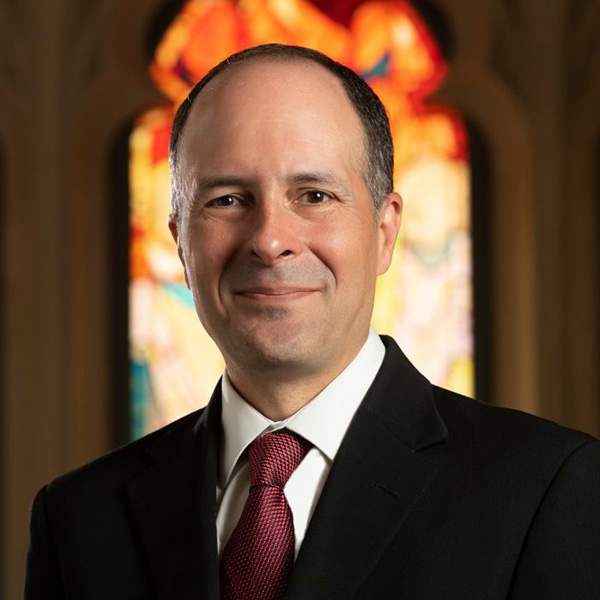Editor’s note: This is adapted from the book “Leading With the Sermon: Preaching as Leadership,” by William H. Willimon (Fortress, 2020).
Leadership is necessary only if an organization needs to go somewhere and if an organization is accountable to a mission more important than its own survival.
 Many people in leadership positions vainly try to foster warm relationships or strive to be efficient managers rather than risk-taking leaders, not because they are so nice but rather because institutions crave the placidity of the status quo and reward those who keep them comfortable.
Many people in leadership positions vainly try to foster warm relationships or strive to be efficient managers rather than risk-taking leaders, not because they are so nice but rather because institutions crave the placidity of the status quo and reward those who keep them comfortable.
Amicable caregiving (the default mode of most of us pastors) is always less costly than courageous leading.
Trouble is, no human gathering survives or thrives without continual transformation, refitting and repositioning, particularly an institution that’s accountable to a living God.
A leader puts an organization in pain that it has been avoiding -- utilizing its very best resources of avoidance -- in the faith that the organization can marshal the resources to have a future.
As G.K. Chesterton said to the church of his day, if you like the look of a fence post and want to preserve it as it is, you must repaint the post every year.
No faithful church is maintained without constant reformation, and no reformation has ever occurred without Spirit-induced preaching and leadership that inevitably produces discomfort in the people and in their leader.
A courageous pastoral leader, in service to the needs of the church,
- connects the congregation to its pain;
- helps it conceive of its possibilities;
- challenges it to step out of its current attitudes that rob it of a future;
- accompanies the organization through the resulting chaos; and
- supports the reframing and learning that’s required for transformation.
Preaching can be an indispensable contributor to each of these leadership tasks.
There can be no change without the introduction of conscious discomfort into the system, and much of that pain is due to the truth of our condition.
In the organization’s natural desire to relieve that discomfort, it has the option either to deny or to undertake the work that’s required to have a future different from the one to which the organization seems to be fated.
The leader induces pain as a necessary, unavoidable prelude to the possibility of the achievement of something better in the conviction that God really wants us to succeed at this work.
These truths of leadership ought to come as no surprise to those of us who must preach every Sunday. Preachers routinely dare to disturb by saying, in effect, “Here’s a word you have been avoiding all week” or, “We need to have an honest conversation” or, “Can you believe that Jesus would say something like this to people like us?”
In preparing to move from the biblical text to a sermon, I have found that it’s a good interpretive principle to look for the tension in the text, to focus upon the trouble, the point of pain.
The tension between the congregation and the text can be a preacher’s ally. Trouble draws our listeners to question, to engage, and infuses energy into our proclamation.
I accompanied a group of church folks on a work team to clean up in the days after Hurricane Katrina. In preparing for my sermon that Sunday, I reached for an obvious text, Mark 6 -- Jesus coming to his disciples in the storm:
We have just been through a terrible storm. Many of our churches, parsonages and church facilities have been destroyed. Yet even amid the devastation, it’s good to know that Jesus comes to his followers in the storm and speaks, reassuring them, offering them peace. Sort of like what Jesus is doing for us during our time of need today. Right?
The Gospel of Mark says:
“Jesus made his disciples get into a boat and go ahead to the other side of the lake, toward Bethsaida, while he dismissed the crowd.
“After saying good-bye to them, Jesus went up onto a mountain to pray. Evening came and the boat was in the middle of the lake, but he was alone on the land. He saw his disciples struggling. They were trying to row forward, but the wind was blowing against them.
“Very early in the morning, he came to them, walking on the lake. He intended to pass by them. When they saw him walking on the lake, they thought he was a ghost and they screamed. Seeing him was terrifying to all of them. Just then he spoke to them, ‘Be encouraged! It’s me. Don’t be afraid’” (Mark 6:45-50 CEB).
Jesus “made his disciples get into a boat” (a midnight sail in the storm was his idea, not theirs) while he went off to pray. That’s strange, considering the gathering tempest.
But when Jesus “saw his disciples struggling” with the wind against them, “he came to them.” That’s what Jesus does. In the midst of the storm, he comes to us. Many of you can testify that when the sky is dark, when the storms of life are raging, Jesus comes to us and stands by us.
But this time through this beloved text, I received a jolt, noticing a detail in the story I had never before noted: “He intended to pass by them.”
What?
“Jesus, we’re going down for the third time! Come save us!” And Jesus, just out on the waves for a stroll, intending to go somewhere else important, interrupts his journey, stops, hears and responds.
Intended to pass them by? What’s that supposed to mean?
I couldn’t shake the question.
Can it be that Jesus has more important work than speaking to and rescuing his own followers? Do you mean that Jesus’ mission is greater and more expansive than our church in our time of need?
I was on my way to an unexpected sermon. I had intended to lead by offering the church rather conventional pastoral reassurance: Jesus comes to us in the storm.
Instead, smacked by verse 48, I had a different sort of leadership to offer.
Let’s be honest: sometimes the leadership pain that must be endured is personal. It’s easier for me to lead in the same way that worked for me in the last congregation than to refashion myself. I’m more comfortable leading in the ways in which I’m already equipped than exploring new patterns of leadership.
Internal maintenance is rewarded. Organizations do not want their leaders to undertake difficult work, because it causes them pain, even if that difficult work is necessary for the future of the organization.
Churches tend to reward pastors for doing what they want done and punish them for challenging their worldview. All systems favor self-protection and yearn for equilibrium, the church even more so.
Yet whether they listen or refuse to listen (Ezekiel 2:5), acceptance of the message by the listeners -- confirmation of the listeners as they are -- has never been the supreme test of Christian communication.
The preacher’s willingness to challenge, confront, cajole, to be misunderstood or even rejected in bringing the gospel to speech, can be a valuable asset in the preacher’s vocation to lead God’s people from where they are to where God wants them to be.














